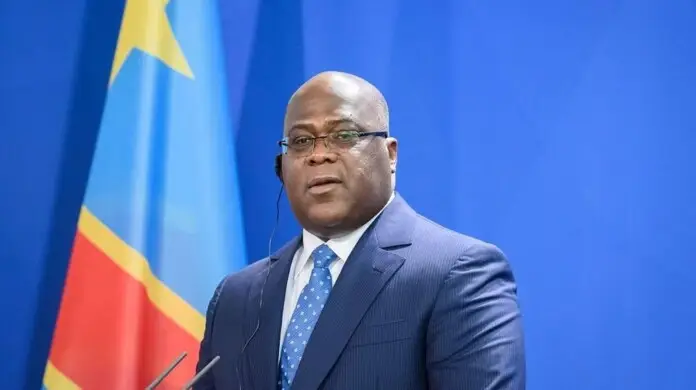
In a bold move aimed at restoring peace and stability, President Félix Tshisekedi of the Democratic Republic of Congo (DRC) has announced plans to form a unity government, as violent conflict continues to ravage parts of the country. The announcement comes in the wake of escalating tensions and widespread violence, particularly in the eastern regions, where armed groups have caused displacement, death, and destruction.
The DRC, rich in natural resources but plagued by decades of instability, has been embroiled in violence due to the presence of numerous rebel groups, militias, and foreign armed forces. The eastern provinces, in particular, have been hotspots of conflict, where ethnic tensions, control over valuable mineral resources, and long-standing grievances have fueled brutal fighting. Thousands of civilians have been caught in the crossfire, with many losing their lives or being forced to flee their homes.
President Tshisekedi’s decision to form a unity government is seen as a response to growing frustration among Congolese citizens, political leaders, and international observers who have urged for a unified approach to address the country’s pressing security and humanitarian crises. The president, who came to power in 2019, has faced significant challenges in uniting a fragmented political landscape, as well as managing ongoing conflicts in the east.
The proposed unity government is expected to bring together various political factions, civil society groups, and even former rivals, to form a coalition focused on achieving peace and stability. Tshisekedi has emphasized that this government will prioritize the security of Congolese citizens, the disarmament of militias, and the restoration of state authority in conflict zones.
However, critics of the president’s plan have raised concerns about the practicality and effectiveness of such a government, given the deeply entrenched nature of the violence in the DRC. Some argue that while the idea of unity is noble, the country’s political divisions and lack of a cohesive national security strategy may hinder the success of the initiative.
International bodies, including the United Nations and the African Union, have expressed support for Tshisekedi’s initiative, urging all political actors in the country to work together for the greater good. The international community has also pledged to increase aid to those affected by the violence, including providing humanitarian assistance and supporting peacebuilding efforts.
Despite the support, there are doubts about how much influence the Congolese government will be able to wield over the numerous armed groups operating within its borders. Several of these groups have maintained their control over key regions, often disregarding government authority and international calls for ceasefires.
In addition to security concerns, the DRC is facing a dire humanitarian crisis, with millions of people in need of food, shelter, and medical care. The violence has disrupted vital infrastructure, making it increasingly difficult to deliver aid to those in need.
The announcement of a unity government is seen as an attempt to address these multifaceted challenges, but it remains unclear whether this will be enough to curb the violence. Many believe that a comprehensive peace process, involving regional players and a commitment to long-term reconciliation, will be required to truly bring an end to the suffering.
As violence continues to spread, all eyes will be on the DRC’s government and the international community to see if President Tshisekedi’s unity government can bring the peace and stability that millions of Congolese citizens desperately need. The next few months will be critical in determining whether this bold political maneuver will succeed in the face of one of Africa’s most enduring and complex conflicts.

